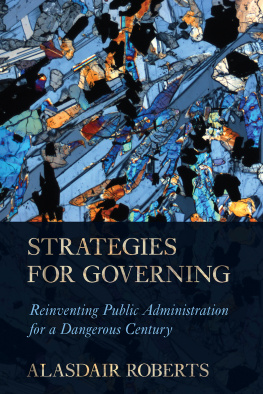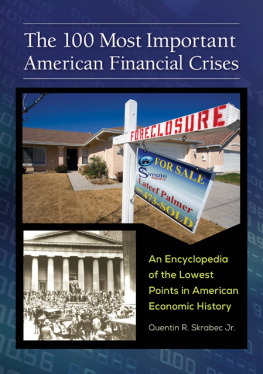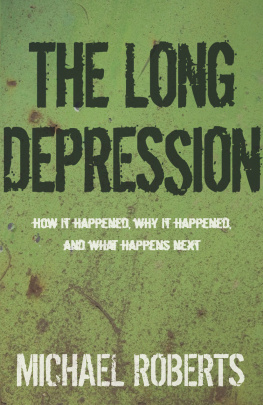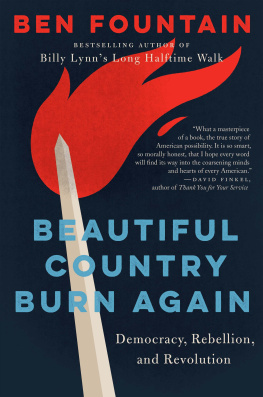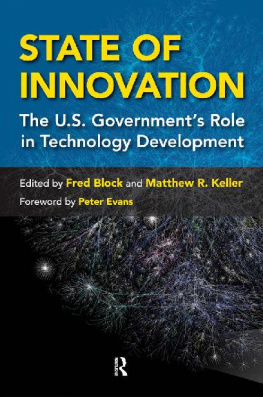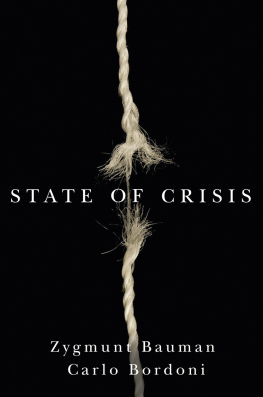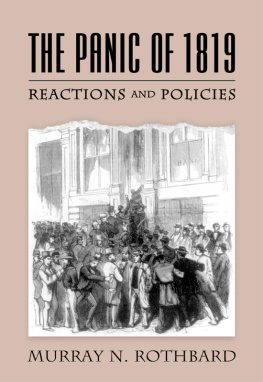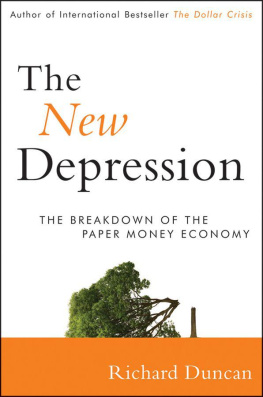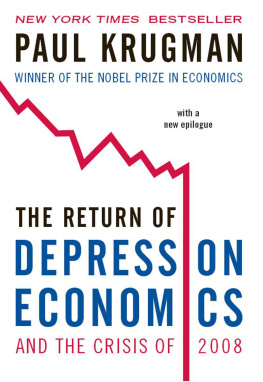Introduction
Back to the Future
There was a time, not so long ago, when most Americans felt good about the economic prospects for themselves and their country. In 2006, according to polls, Americans thought that their personal circumstances and the economic condition of the nation as a whole were better than they had been in several years. Most regarded their personal finances as secure, and expected further improvement in the following year. Confidence was buoyed by rising home prices. Few Americans expected a significant decrease in housing values. A majority said it was a good time to buy real estate.
Confidence about economic conditions at home was matched by self-assurance about the United States place in the world. In 2006 most people still viewed the nation as they always had: in the words of Paul Volcker, former chairman of the Federal Reserve, as a huge and relatively self-sufficient country, in control of our own destiny. Many also regarded the United States as the keystone of the global order. In 2005, American political scientist Michael Mandelbaum argued that the world should be grateful to the United States for providing the prerequisites for global security and prosperity. The United States is like an elephant, Mandelbaum said, which supports a wide variety of other creaturessmaller mammals, birds, and insectsby generating nourishment for them as it goes about the business of feeding itself. It takes hubris to tell the world that it should be happy to forage in a pile of elephant dung. But that was the temper of those times.
This air of assurance was shattered by 2009. In the preceding year, the economy went through something like a near-death experience. The financial system seized up. Major firms went bankrupt, and others were saved only after extraordinary governmental interventions. An economic meltdown was avoided, but the economy was still sliding into recession. It was a humbling and humiliating moment for the United States, one observer said. The impression of U.S. wealth and power was dissipating quickly. So, too, was the countrys credibility on matters of economic policy. All levels of American government, major businesses, and households now realized that they were living beyond their means. Some commentators thought that these bleak conditions would persist for a very long time. It seemed that we were entering a new normal, just as we had a few years earlier, after the attacks of September 11, 2001. The United States, it appeared, would have to adjust to a more modest and vulnerable place in the global economy.
Fears about the decline of the United States were broadly aired. Economic historian Niall Ferguson warned that the countrys status as a great power was at risk, and that the slightest external shock might cause dramatic shifts in the global order. Economist Jeffrey Sachs of Columbia University said that this shift had already happened and that the United States had ceased to be the indispensable leader. Japanese Prime Minister Yukio Hatoyama agreed that the era of U.S.-led globalism is coming to an end. (Hatoyamas end came more quickly: he resigned as prime minister after only ten months.) In September 2010, The New York Times observed that President Obama and his immediate predecessors
have been forced to contend with the erosion of self-sufficiency. [U]ntil the end of the Soviet Union, Americas economic and national security were largely self-determined, thanks to its manufacturing might and its ability to negotiate treaties with other states. But the advent of truly global markets, along with threats from non-state forces like Al Qaeda, changed all that. Now we live in an integrated world where American jobs rely on the economic policies of governments in Asia or Latin America, while our security is subject to the whims of a cleric living in a cave.
One aspect of the predicament confronting the United States that troubled many observers was its relationship with China. Before 2007, it was not unusual for Americans to argue that they served an important role in the world economy as consumers of last resort: that is, they could be counted on to provide the demand relied on by other export-oriented countries. Foremost among these was China, whose products clogged the west coast ports of the United States. The other side of this relationship gained little attention until after 2007. China used its massive earnings to finance American consumption. In 2008, China passed Japan to become the U.S. governments largest foreign creditor.
This appeared to put the United States in the uncomfortable position of dependence to a foreign power. During the early phase of the crisis, U.S. Treasury Secretary Henry Paulson phoned senior Chinese officials to reassure them that the U.S. government would live up to our obligations. This is not the sort of call usually made by a superpower to a developing nation. But decision makers in Washington became very sensitive to Chinese preoccupations after 2007; they paid attention when China criticized its monetary policy and worried about the United States ability to deal with chronic budget deficits. Pete Peterson, former chairman of the Black-stone investment firm, saw a risk that U.S. foreign policy would become hostage to Chinese debt. As Gao Xiqing, president of the state-owned China Investment Corporation, explained in 2008, it is important to be nice to the countries that lend you money.
Concerns about the rising influence of China were sometimes discounted. After all, similar apprehensions were voiced about Japan several decades ago. In 1970, the futurist Herman Kahn called Japan the emerging superstate and predicted that its gross domestic product (GDP) would exceed that of the United States by the year 2000. Japan, it was said, had accumulated resources on a hegemonic scale and seemed bent on doing with money what it did with guns fifty years ago. But this turned out to be exaggeration. The Japanese economy imploded in the mid-1990s and never fully recovered. Today, its GDP is only a third that of the United States.
If we were wrong about the rise of Japan four decades ago, could we be wrong about the rise of China today? Perhaps. Assessments about the global role of the United States tend to have their own euphoria-and-depression cycle, and we are very definitely in the depressive phase at the moment. Despite the current crisis, the United States is a rich and militarily powerful country, and it will remain this way for many years to come. Having stated this, however, it is undoubtedly true that the relative importance of the United States in the global economy will decline over the long run.
The American predicament is illustrated by Figure 1. Based on data produced by economist Angus Maddison, it shows the shares of global GDP produced by the United States and two regionswestern Europe and east Asiabetween 1820 and 2008. The chart vividly illustrates the effect of industrialization in giving an economic lead to Europe and the United States up to the start of the Second World War. It also provides a graphic reminder that, in the aftermath of the war, the United States was very much the anchor of the global economy. But there is also a third truth that is evident in the chart. The relative significance of the United States (and also Europe) has been declining for the last sixty years. The benefits of economic modernization have come to east Asia, and as a consequence the region is recovering its place in the world economy which it held before the advent of the industrial revolution.


